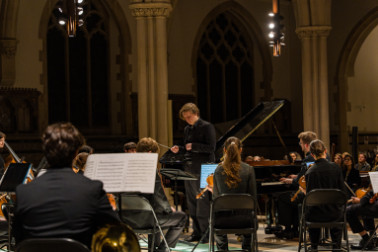The guests of the festival will have an opportunity to enjoy the following Woody Allen movies:
October, 20 – Manhattan (1979)
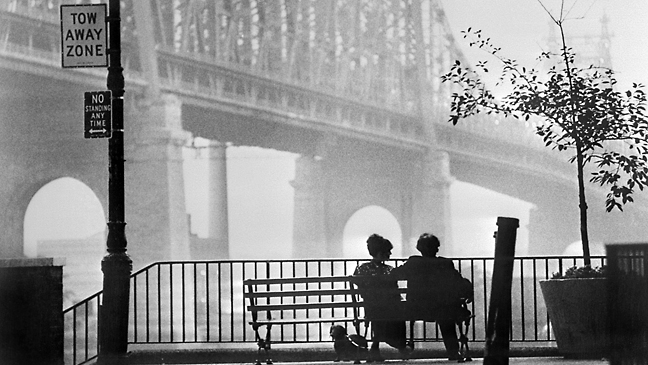
Photo: pinterest.com
It is considered that “Manhattan” is a cinematic love letter to New York. But it’s actually the opposite: a thank-you card from New York, via Allen, to cinema – for the alchemical process by which light and shade and music can turn buildings and streets into a miraculous, shared dream of a city. In theory it’s a romantic comedy, though its romance and humor are by turns anxious and wistful, and its characters come weighed down by manifold flaws and neuroses (not least the troublesome May-September romance between Isaac, Allen’s conflicted comedy writer, and Mariel Hemingway’s 17-year-old student).
Instead, it’s the city itself, frozen in time by Gordon Willis’s immaculate black-and-white photography, that nourishes them. Simply by watching the sun rise over the East River, a Gershwin song drifting out of the morning mist, Allen’s tiny worker ant can somehow feel like the king of the colony.
October, 21 – Match Point (2005)
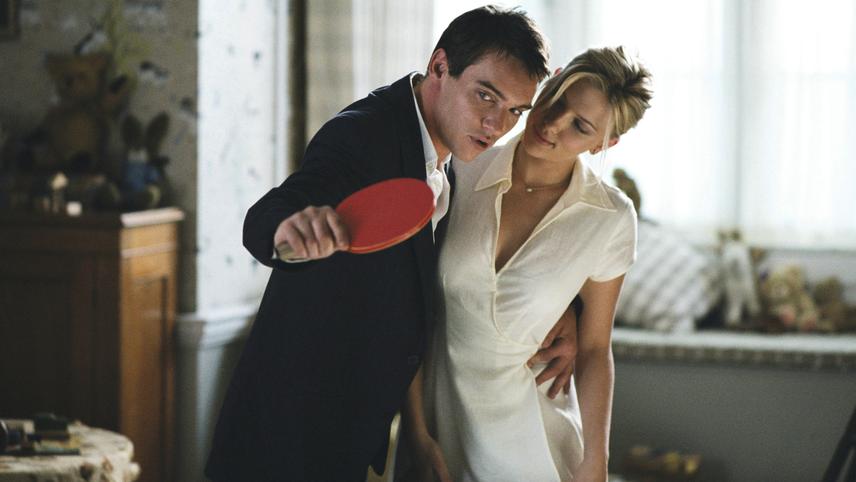
Photo: IMDB
“Match Point” actually did Allen some favors: it set him up with a new muse in Scarlett Johansson, made decent money, and the script got him his first Oscar nomination since the late 1990s, to the abject horror of most British critics. Kinder US reviews saw this London-set murder tale as a return to the scabrous morality play of Crimes and Misdemeanors, but it was one afflicted with a telling and insurmountable tone-deafness: fatal for what was purporting to be a satirical dissection of the English class system. Extra debits for those silly ghosts at the end.
October, 22 – Annie Hall (1977)
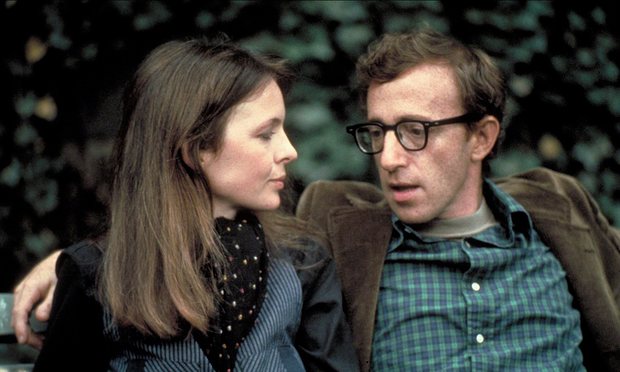
Photo: IMDB
Every scene, every gag in “Annie Hall” is so familiar that it’s easy to forget how abrasively strange it is: the subtitled romantic double-speak, the outpoured soliloquies to camera, the temporal freeness, even Allen’s character, Alvy Singer, wandering through his own childhood flashback. It’s a romantic comedy the like of which cinema had never seen before and since. Allen and Diane Keaton are jousting here on such a perfectly even footing, and with such supremely matched warmth and wit, that you half feel she should be credited as co-director.
It’s established in Allen lore that the picture was originally a two-and-a-half-hour solipsistic ramble, with Alvy and Annie’s fling relegated to a subplot. But in the edit, their relationship was what brought the film to life, and the dead wood was mercilessly cut back. Allen’s preferred name for the film he’d originally planned was Anhedonia: a Greek term for the inability to feel pleasure. There couldn’t have been a less appropriate title for the finished film.
October, 23 – Manhattan Murder Mystery (1993)
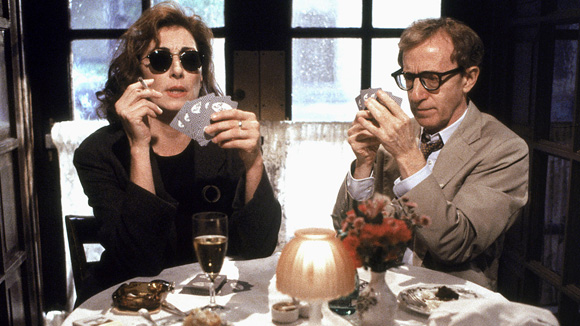
Photo: pinterest.com
After the breakdown of his relationship with Mia Farrow, Woody called up some old pals – Alan Alda, Anjelica Huston, co-writer Marshall Brickman, and even long-absent muse Diane Keaton – for this decompression exercise, which is a lovely, elegant diversion: a sprightly comic spin on the kind of material he’d attacked before for trenchant irony. Woody and Diane enter Nick-and-Nora detective mode when their elderly neighbour (Lynn Cohen) abruptly drops dead. The dime store plot – not always Woody’s main point of interest – is satisfyingly wrought, perhaps thanks to Brickman’s input, and the quartet of leads fall back into a mutually skeptical sparring mode that’s flat-out irresistible.
October, 24 – Love and Death (1975)
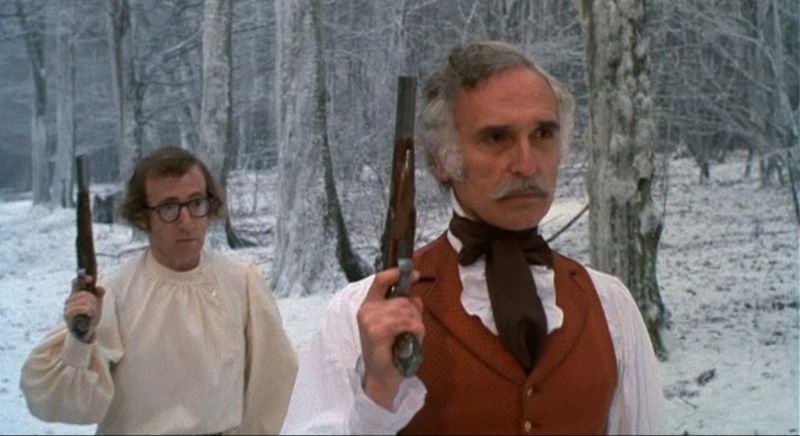
Photo: IMDB
The smartest of Allen’s early run of scattershot comedies is a surprisingly accessible send-up of the Russian literature he was devouring at the time, and which would go on to shape his later, weightier work. Allen is Boris Grushenko, a “militant coward” who’s sent off to fight the French, and ends up involved in a plot to assassinate Napoleon with the help of his pretty cousin (Boris: “twice removed!”), played by Diane Keaton, who’s well on the way to the height of her comic powers. Parodies of Tolstoy, Eisenstein and Bergman rub shoulders with some vintage surreal and bawdy Allen riffs.
October, 25 – Vicky Cristina Barcelona (2008)
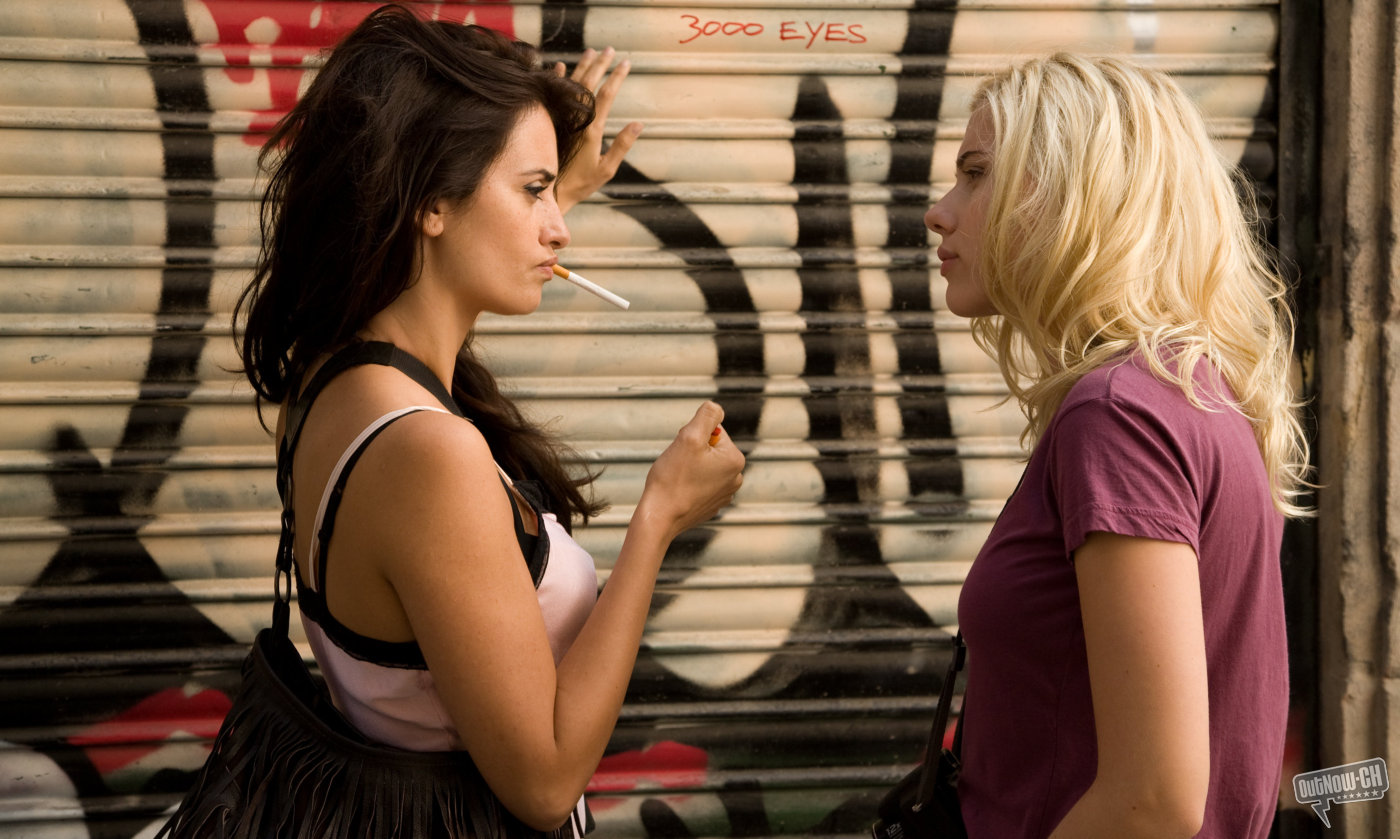
Photo: pinterest.com
The best of Allen’s Europe-trotting films is the one most in touch with its touristic soul. Scarlett Johansson and Rebecca Hall are two young American women who fall for Javier Bardem’s divorced artist during a Catalonian excursion – and like “A Midsummer Night’s Sex Comedy”, it’s the idea of romance as a mini-break for the soul that gives the film its rosily libidinous power. Of its unspeakably attractive cast, Penélope Cruz was the eventual Oscar-winner; oftentimes, you sense Allen’s just happy to be tagging along for the ride.
October, 26 – Stardust Memories (1980)
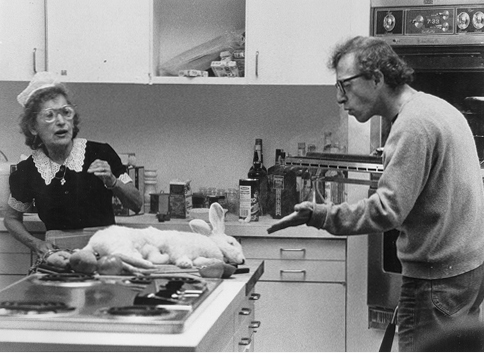
Photo: pinterest.com
If Allen’s first truly great film arrived in 1977 (see no 3), it was three years later that his greatness began to rankle – with both his audience and himself. “Stardust Memories” is about the moment that artistic success feels like failure: it was Allen’s own, chortlingly prosaic version of the high-toned creative ennui of Fellini’s “8½”. Allen plays himself – or, rather, the filmmaker Sandy Bates, who’s buffeted by fans and torn between lovers to the point that chaos starts to take on the shape of art itself. Slammed at the time, it’s a retrospective knock-out, thanks to its ambitious structure, vinegary gags and the searing monochrome photography, courtesy of Gordon Willis.
«Woody Allen Movie Festival» is hosted by Copernicus Movie Theater in Lviv downtown. The tickets cost UAH 30, or you can buy a 7-day ticket for UAH 150. All the movies start at 7 PM.
Read: Barometer Bar Show in Kyiv
When: October 20 - October 26, 2016.
Where: 9, Kopernika street. Lviv. Copernicus Movie Theater.


